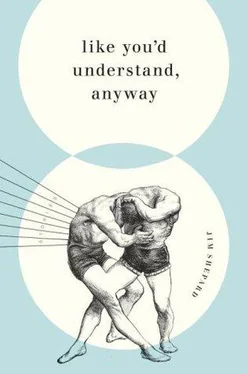I am Aeschylus son of Euphorion of Eleusis and I've come this day with my brother to take my place in the line with my tribe to meet the invader where he disembarks and drive him back into the sea. We've rested and waited six days in the Herakleion sanctuary on the plain of Marathon, with the Median fleet filling half the shoreline of the bay, even with their ships anchored eight deep. More men-at-arms are assembling before the Great Marsh than any of us have ever seen. We're told that their word for commander means “Leader of the Hosts.”
At the eastern end of the marsh is a lake, which enables them to water their horses. A stream flows out of it to the sea. It's fresh enough to be drunk by cattle where it issues from the lake, but at its mouth turns brackish and fills with saltwater fish.
Who knows me better than my brother Kynegeiros? Who's looked after me with more care? Whom have I disappointed as intensely? Who's been as terrible a household presence?
Who's trained me? Who's pruned my independence? Who's stopped my mouth? Who's set my feet on the path of understanding, and shown that knowledge comes in suffering? Whose hard hand gave me this scar across my scalp, just because it could?
We've spent six days checking and rechecking our kit and avoiding idlers and gossips. He's tried to interest me in his surgeon's packet: here's how you start the needle with the catgut twine; here's how you grip the narrow-nose to extract an arrowhead, as opposed to a sword shard. I don't need to be reminded that battlefield surgery can save a life. Yesterday to please him I sewed up some oxhide as practice.
We marched all night through Pallene, skirting Mount Pelikos to the southeast, and arrived here on the plain at first light. The plain, empty of trees and left fallow for grazing, smells of the wild fennel that gives it its name.
I'm all aches and pains. My brother has a month-old sprain that he aggravated on a gravely downhill track. I'm forty-four and he's forty-nine. We're no longer young men. We have families.
Here is our country's situation as we understand it: the Persian has come in response to our support of the Ionian revolt and the burning of his citadel at Sardis. He has come with the combined nations of Media, Sakai, Ethiopia, Egypt, Dacia, Scythia, Bactria, Illyria, Thessalia, and India. He has come through Rhodes, Kos, Samos, Naxos, Paros, Karystos, and Eretria, subjugating each as he went. Everywhere his fleet has put in, he has demanded and received hostages and men-at-arms. He has come in such numbers that the disembarking alone has taken, according to the local farmers, nine days.
We are of the deme Eleusis and the tribe Aiantis, and when our strategos draws us up in battle order, we will be in the place of honor on the right flank, the sea off our shoulders. We will with our other Attic demes and allies form a rank facing the invader that is sufficiently long but insufficiently deep. Our leaders call it Stretching the Soup. The rest of us call it, with quiet irony, Our Challenge.
I channel the rote and the new and unseen. My head has always been the busiest of crossroads, a festival of happy and unhappy arrivals. In the hours before daybreak when I was a boy, god sent me words as visitors. I told my brother. Back then I was still in his favor. I kept my stylus and wax tablet within reach by my bedside. In the mornings I showed my mother too, examples like loosed and winged. I remember that Tartarean troubled her in ways that I didn't understand.
“Where did you get these words?” she asked. “Who's been speaking to you?”
“Kynegeiros,” I always said. Which made her think the words came from him. When he denied it the first time — I was ten, he was fifteen — our father had him beaten. Some of the words were evidently impious.
“Tell me about the words,” my brother told me later, while I helped him with his back. “Don't tell them.” We gathered and crushed in a pestle the foxglove and sorrel, and I applied the paste to the welts he couldn't reach.
What I told him caused him concern. He questioned me about whatever else I may have noticed by way of omens or signs. He talked about how to know if I was speaking only with myself. I became his new responsibility. He gave himself over to it, his resentment plain.
Even so, I didn't stop. In the mornings I'd scratch Onus and Dyad in the loam of our herb garden. He'd explain their meanings. When our other brother Anacreon or our father happened near, we went about our business, the scratchings our secret.
But when we were alone again, he'd say, “Who's giving you these?” I didn't know, I told him. Where was I hearing them? he'd ask. In my head, I'd tell him. This caused him to hold his forehead with his fingertips.
Once he asked how I felt when they arrived. I didn't know. Did I hear a voice , or see the words in my head? I didn't know.
So he broke my wax tablet and was angry with me for a week. It scared me. And pleased me. Maybe, I thought, I was headed down the wrong path. Now, words from elsewhere still marshal themselves, rebel or obey me, send their havoc out into the world, and my reward is the laurel wreath. But back then, I spent my time alone in the hills above our house, telling myself that if I couldn't read the meaning of such signs, I could at least learn something about my world.
Anacreon also kept track of my strangeness, but with more hostility. He was the firstborn and eight years older. Usually I told myself that I had one brother who understood and one who didn't, but the week Kynegeiros was angry I wandered around alone, collecting signs to ask him about later, once he'd begun speaking to me again: the wind on a ridge line like a rush of voices, or patterns in a poplar's bark that repeated themselves in one of its taproots. When he finally took me back, I asked him: did my difference mean I was one of the elect, or cast out? He cuffed me for my presumption. I didn't persist, but decided to act , and to let the inner spirit follow the outer shadow. I had him cut my hair in what he said was the ancient Doric style: close-cropped at the forehead and long in the back. I modeled as many of his behaviors as I could, the way children learn about the clean hand and dirty hand and which you keep to yourself. Both of my brothers took pleasure in their manners, speaking only when addressed. They were respectful with their gaze, their greetings commendable.
After matricide had especially disturbed him, he asked me to remember the first time the words had appeared. Did I remember? I thought I did: a morning when I was three or four, in a powdery season of little rain. I'd had barley dust on my hands. He'd been seated nearby. He must have been eight or nine. He'd been watching Anacreon working a rasp up and down an ash shake for a javelin. As I watched him watch, my heart rose and fell, rose and fell, and no one knew. A word appeared before me: starfish. A crow dropped to the ground and both my brothers made note of it and Kynegeiros shooed it away.
I asked if he remembered. He didn't, but held his wrist as if trying to immobilize one hand with the other. When he let go, he said that he did remember the way my expressions, at that age, had been comically severe.
My brothers and their friends played their war games at the edge of our wheat field. When I followed they chased me away.
When I returned they chased me away again. At home I attempted descriptions of the architecture of the stalks, the leaf blades sheathed around the stem or the spikelets' airy intricacy. Just being in the field made a force in my chest levitate. But my excitement went too far and somehow upset my family. I tried to confide in Kynegeiros when I caught him alone, but it repulsed and alarmed him that I was so tireless in search of attention, as if he'd found a spider in his soup.
Читать дальше












